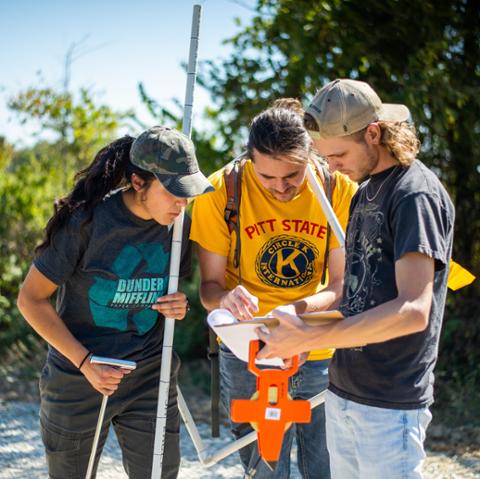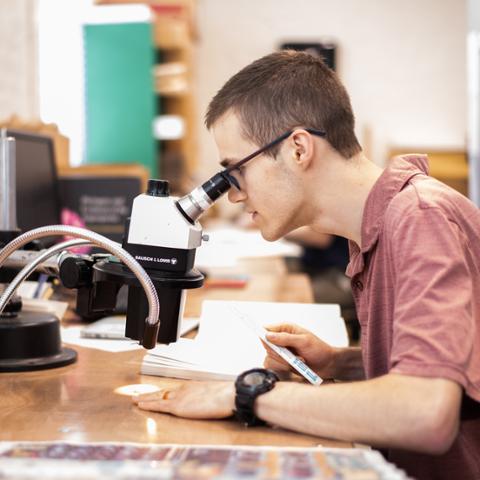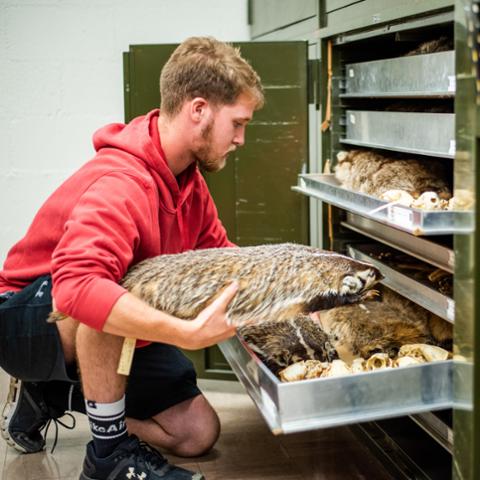Study Ecology and Field Biology
Major in Biology with an Emphasis in Ecology and Field BiologyObservation, exploration, and discovery: be a scientist in the wild.
Gain hands-on experience in the natural world. Pairing fieldwork with labs, students learn about the behavior and ecology of organisms.
Through the ecology and field biology courses, conduct research projects, collect meaningful data, and master field techniques used in the workforce.

Immerse yourself in the great outdoors collecting plant specimens, sampling soil, setting animal traps, and installing survey cameras.

Assist faculty in data collection that can become published research, benefit the Smithsonian, or win awards at conferences.

100,000 specimens are housed at Pitt State including plants, mammals, and fish. The collection is diverse, spanning several countries, and dates to the early 1900s.
What is an ecologist?
Ecologists study the interactions and relationships between living organisms and their environment. Their duties may include:
- Monitoring wildlife populations
- Determining the impact of human activities on natural systems
- Analyze data to draw conclusions about ecological patterns
- Communicating research to policymakers
Ecologists use a variety of methods to gather data. They conduct field observations, experiments, and build mathematical models to understand and predict the behavior of ecological systems.
Ecology jobs of Pittsburg State graduates
- Environmental Consultant
- Research Scientists and Research Assistants
- Park Naturalist
- Restoration Ecologist
- Natural Resource Manager
This track is recommended for students pursuing a career in zoology, evolutionary biology, environmental science, wildlife biology, conservation, and more.
Classroom topics in the Ecology and Field Biology emphasis
- Physiological Ecology
- Natural Selection
- Population Biology
- Ecosystem Dynamics
Combining both lab and field activities, this program gives students a hands-on, interactive look at the relationships between organisms.
Additional information
Biology - Ecology & Field Biology Degree Map download
Catalog – see catalog for the School of Science and Mathematics